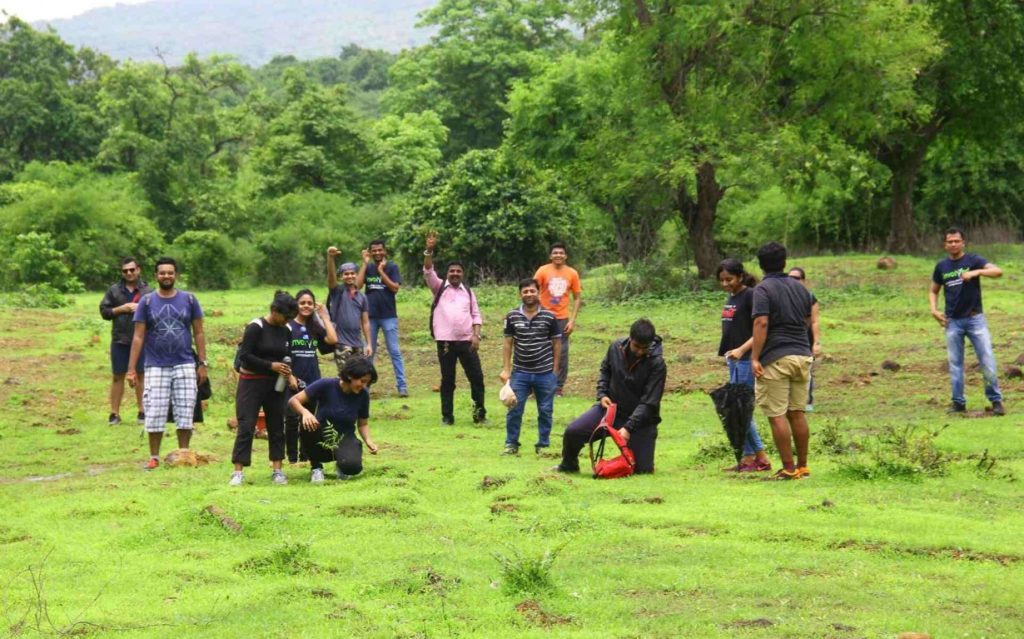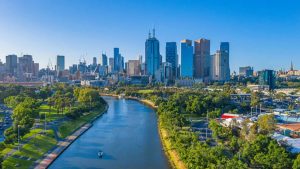
Sustainable Nature Trails – Mumbai
Plastic pollution, due to its indiscriminate disposal, is one of the greatest environmental challenges of our current generation. Plastic production has skyrocketed since 1950 and it is estimated that by 2050, we shall have more plastic in our oceans than fish. Most people today are aware of the millions of tons of plastic swirling around the world’s oceans, however, plastic pollution on land is an equally pressing issue. Very little of the plastic we discard every day is recycled. Most of it is dumped in landfills, where it may take up to 1000 years to decompose, all the while leaching potentially toxic substances into the soil and groundwater.
While plastic pollution from everyday plastics like disposable cups or bags are an eyesore and pose their fair share of environmental issues, microplastics are a more challenging threat to the ecosystem. Microplastics are tiny plastic fragments broken down from larger plastic objects. Although plastic doesn’t decompose like organic matter, it does physically degrade into smaller particles under exposure to light and weathering. The smaller these plastic particles are, the more difficult they are to identify, collect, and clean up.
On Saturday, 30th June, Earth5R conducted a citizen-driven sustainability event in the lap of nature – Sanjay Gandhi National Park. The event was organised in the lungs of Mumbai city to raise awareness amongst citizens on the significance of such clean and green areas. A number of activities were planned with the aim to promote sustainable solutions for environmental issues. Under the ACT program, the Earth5R team visited Sanjay Gandhi National Park to conduct a mass clean-up drive to tackle the issue of microplastics. They worked towards restoring lost ecosystem by undertaking a ‘One tree, per person’ plantation program. Furthermore, the team trained citizens on making sustainable products with the use of minimum resources. In the end, the team held a brainstorming session in the form of a ‘sustainable hackathon to develop a system/service to solve some of the current challenging socio-environmental problems like poverty, deforestation, and water crisis. Moreover, the 60 participating citizens were provided with ‘sustainability kits’ consisting of latex gloves, organic Neem powder, and organic compost with seeds of mystery vegetables for kitchen gardens.
CLEAN-UP TRAIL
The day-long event began at 9 am with a nature walk with a difference – a cleanup trail. Despite the recent plastic ban in Maharashtra and its strict enforcement within the National Park, we encountered huge amounts of plastic in the vicinity of villages within the Park. In fact, the bulk of these plastics were microplastics – small pieces of plastic that cannot be collected nor recycled efficiently. These microplastics include tiny pieces of candy wrappers and tobacco sachets.
Further, founder of Earth5R – Saurabh Gupta, organised spot clean-ups by citizens following which he would find buried and degraded microplastic fragments from the ‘cleaned’ area. He demonstrated the all-pervasiveness of microplastics such that they are so integrated into our soil ecosystem that we cannot even identify such fragments. In fact, Mr. Gupta even found a piece of wrapper belonging to a brand that closed down almost 20 years ago which indicated that the particular piece of plastic had been in the soil for at least 20 odd years.
Citizens walked along in the lap of nature while simultaneously picking up this stray plastic littered in the National Park. With continued efforts through the morning, the team collected several gunny bags full of plastic waste to be further sorted and then sent to recyclers. Moreover, reusable plastic gunny bags were used for the collection of waste. In addition, plastic bottle caps were collected separately for a recycling project under ACT Powai that aims to recycle this plastic waste into park benches.
PLANTATION DRIVE
The second phase of the event addressed the decreasing green cover of the city. In a continued attempt to mitigate this loss, citizens picked up shovels and planted over 50 trees in the pouring rain. Each citizen Neem trees were chosen for this activity as they are well suited to the existing biodiversity of the city. Moreover, the well-known antibacterial properties of Neem make it a valuable medicinal resource.
PAPER-BAG MAKING
Phase 3 of the sustainability event focused on practical upcycling methods to utilise waste as a resource. Citizens were trained on making sturdy paper bags using old newspapers, twine, and glue. Moreover, in keeping with the organic theme of the event, the glue used was homemade organic glue, made of starch. The process was so easy and simple that everyone had made their own paper carry bags in 15 minutes.
SUSTAINABILITY HACKATHON
The final activity of the day attempted to motivate citizens to come up with solutions to major environmental concerns. Citizens were divided into groups and then assigned specific environmental issues to tackle through a workable sustainable product or service. The issues included recent issues such as developing alternatives to plastic carry bags in the wake of the newly-imposed plastic ban, increasing the green cover of Mumbai city, and promoting the use of sustainable products. The citizen teams came up with truly innovative solutions that might just be implemented by Earth5R!
Post the event, the Earth5R team cleaned up the surrounding area till there was no trace of any trash. All collected garbage was disposed of through appropriate channels. Citizens returned home brimming with newfound knowledge on microplastics and sustainability challenges, all the while realising that every single effort does in fact count!




